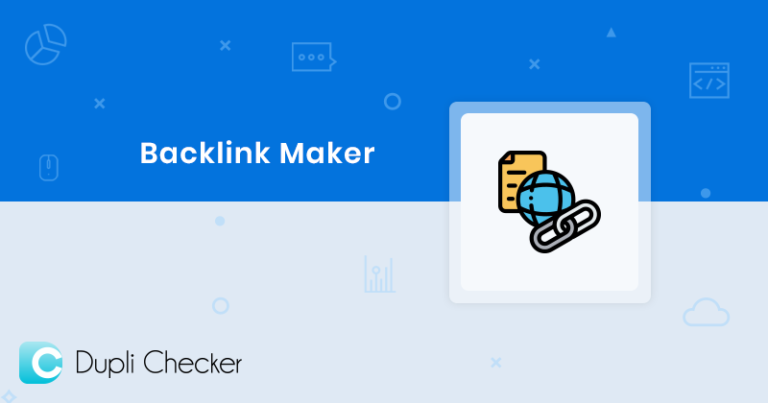How a Reverse IP Domain Checker Reveals Hidden Gems
Learn how a reverse IP domain checker uncovers websites sharing the same IP, boosting SEO and enhancing competitive research for better strategies.
Introduction
Ever wondered what treasures might be lurking in the vast digital landscape? Enter the reverse IP domain checker—a tool that’s not just for techies or hackers. It’s an indispensable resource for marketers, security pros, and curious web users alike. Whether you’re sniffing out competitors’ strategies, auditing your server setup, or just satisfying a bit of nosy curiosity, this tool can work wonders.
In this guide, we’ll dive into the nitty-gritty of reverse IP domain checkers, explore their applications, and show you how they can be a game-changer for your online strategy. Ready to pull back the curtain? Let’s get started!
What Is a Reverse IP Domain Checker?
Before we go any further, let’s break it down.
The Basics
A reverse IP domain checker is a tool that identifies all the domains hosted on a particular IP address. Unlike a standard domain lookup where you input a domain and get its IP, this process flips the script.
Imagine typing in an IP address and uncovering a list of websites sharing the same server—talk about seeing behind the scenes!
How Does It Work?
The magic happens through DNS records. The checker scans databases to match an IP address with every domain name linked to it. It’s fast, effective, and surprisingly simple to use.
Why Should You Care About Reverse IP Domain Checkers?
So, what’s the big deal? Why should anyone care about a bunch of domains hosted on the same server?
For SEO and Competitive Analysis
- Spy on Competitors: Want to know if your rivals are managing multiple websites or microsites to dominate your niche? A reverse IP domain checker can spill the beans.
- Evaluate Backlink Opportunities: If you find sites on the same IP, you can identify potential backlinks—just be mindful of quality!
Also read : website link count checker
For Security Audits
- Spot Malicious Neighbors: If you’re sharing an IP with shady websites, it could harm your reputation or SEO rankings. Identifying and addressing these issues can save your site from penalties.
- Prevent Cyber Threats: Hackers often exploit vulnerabilities on shared servers. Knowing who your “neighbors” are is a good step toward better security.
For Hosting and Server Management
- Audit Shared Hosting: Many small businesses opt for shared hosting to save money. A reverse IP domain checker reveals if the server is overcrowded, which could affect site performance.
How to Use a Reverse IP Domain Checker
Now that you’re sold on its value, let’s talk about using this handy tool.
Step-by-Step Guide
- Find a Reliable Tool: Popular tools like ViewDNS, MXToolBox, or custom-built solutions can do the trick.
- Input the IP Address: Either paste an IP address or a domain to reverse lookup its associated IP.
- Analyze Results: Review the list of domains that pop up. Look for patterns, competitors, or anything unusual.
Pro Tips
- Use multiple tools for cross-checking data accuracy.
- Combine this analysis with WHOIS lookups for deeper insights.
Benefits of a Reverse IP Domain Checker
Why should you bother incorporating this tool into your digital toolbox? The benefits go beyond mere curiosity.
- Improved SEO Strategy: Unearth opportunities by analyzing competitor ecosystems.
- Enhanced Security: Quickly spot harmful neighbors that could tarnish your domain’s credibility.
- Better Hosting Decisions: Evaluate server performance by understanding how crowded it is.
Common Misconceptions About Reverse IP Lookups
Let’s clear up a few myths!
“It’s Illegal or Unethical”
Not true! Publicly available DNS records are fair game. As long as you’re not hacking into private data, you’re in the clear.
“It Only Benefits Tech Experts”
While IT pros and developers may love these tools, they’re equally useful for marketers, SEO strategists, and even business owners.
“It Compromises Privacy”
No personal data is exposed. It’s just domains and IPs—information already floating out there in the digital ether.
Best Reverse IP Domain Checker Tools
Here are some top-notch tools to try:
- ViewDNS.info
- Free, straightforward, and user-friendly.
- Provides detailed results in seconds.
- MXToolBox
- Great for reverse IP lookups and other DNS checks.
- Perfect for server administrators.
- YouGetSignal
- Ideal for uncovering multiple domains on the same server.
- Easy for beginners to use.
FAQs About Reverse IP Domain Checkers
1. Can I find subdomains using a reverse IP domain checker?
Not typically. These tools focus on domains, not subdomains. However, combining them with subdomain-finding tools can yield comprehensive insights.
2. Are reverse IP lookups accurate?
Generally, yes, but results depend on the tool’s database. Always use multiple tools for cross-referencing.
3. Is there a limit to how many IPs I can check?
Some tools have limits for free users. Paid versions usually offer unlimited queries.
Conclusion
A reverse IP domain checker is like a backstage pass to the internet. Whether you’re curious about who shares your server, eager to dig into a competitor’s online empire, or just safeguarding your digital footprint, this tool can be your secret weapon.
So, what are you waiting for? Start exploring the hidden corners of the web today—you might just uncover something amazing!






